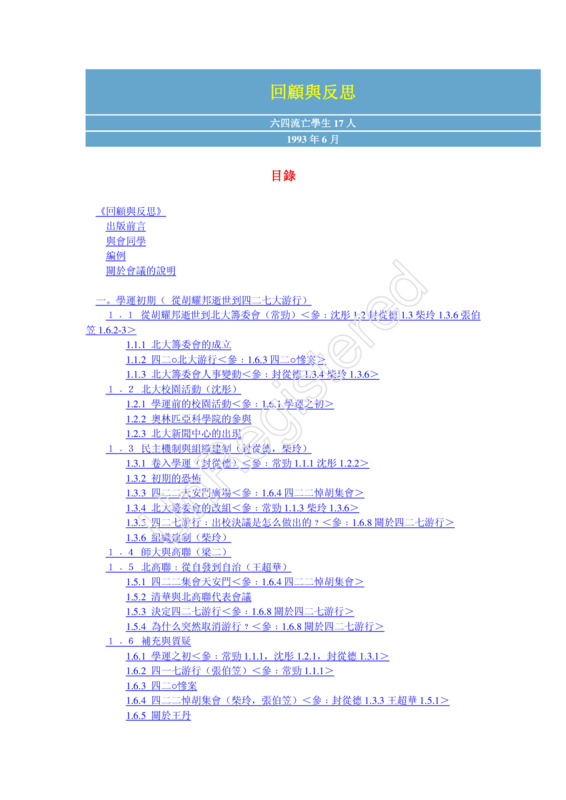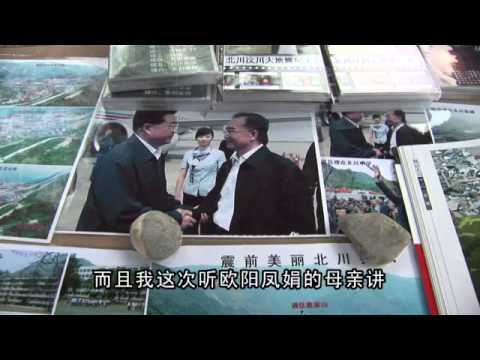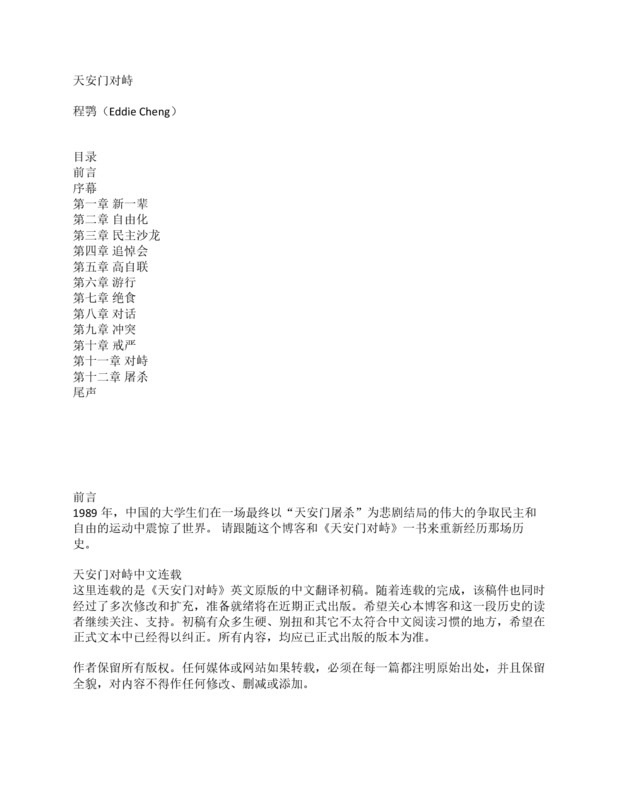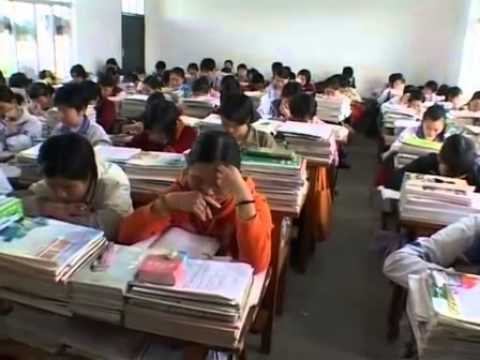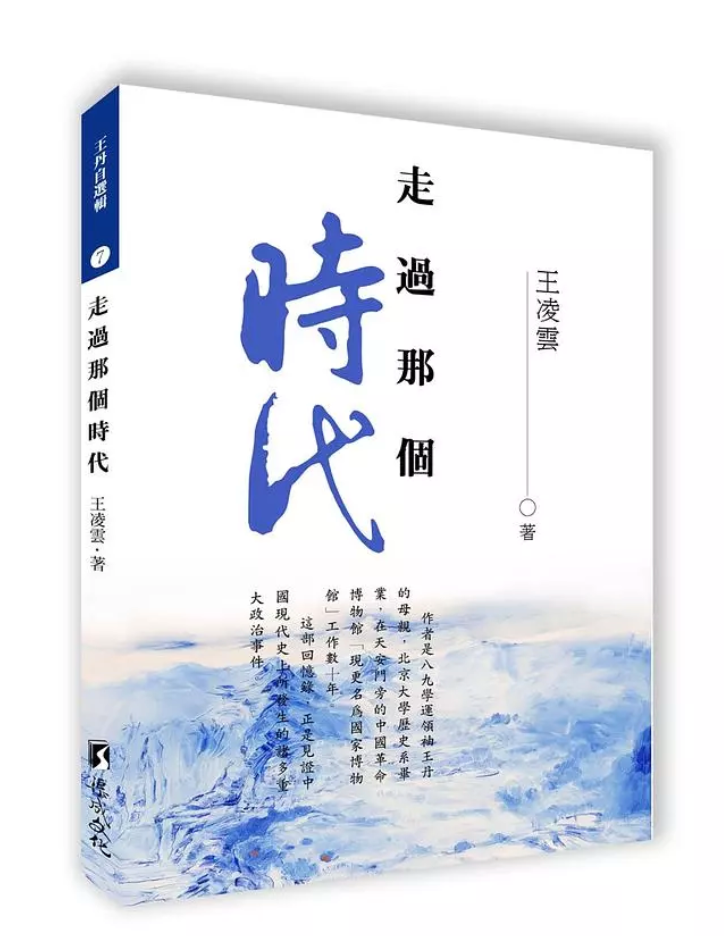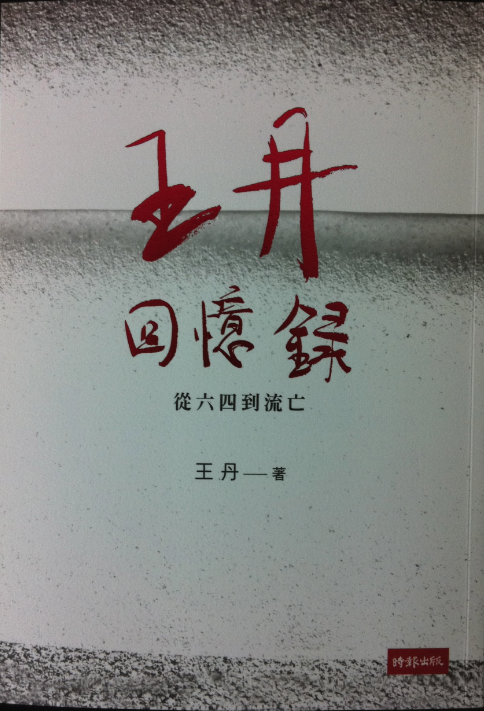Explore the collection
Showing 94 items in the collection
94 items
Film and Video
Postcard
After retiring from her job as a cadre, Wang Lihong fulfilled what she saw as her civic responsibility to become more active in women’s rights in China, especially the protection of their legal rights. In 2009-2010, she became involved in the “Fujian Netizen Case,” which resulted in the arrest of three human rights activists, who all sought to investigate the death of a 25-year-old women believed to have been murdered in a gang rape by men associated with the local police. Wang Lihong wrote letters to the General Secretary of the Fujian Provincial Committee of the Communist Party of China every day for nine consecutive days, calling on the authorities to let them go home for the New Year. For this reason, she was criminally detained by the authorities in March 2011 on suspicion of "picking quarrels and provoking trouble." The case was heard by the Beijing, Chaoyang District People's Court on August 12; nearly a month later, on September 9, the court issued a guilty verdict and sentenced Wang Lihong to nine months in prison. The film documents her case, and raises questions about the accountability of the local government and police. Another one of Ai Xiaoming’s films, “Let the Sunshine Reach the Earth,” documents Wang Lihong’s trial process in more detail.
This film is in Chinese with Chinese subtitles.
Book
Prisoner of the State: The Secret Journal of Premier Zhao Ziyang
“The Course of Reform”, a memoir by Zhao Ziyang, former General Secretary of the Central Committee of the Communist Party of China, was published on May 29, 2009 by New Century Press in Hong Kong. Its English translation, “Prisoner of the State: The Secret Journal of Premier Zhao Ziyang” was published on May 13 before that. According to the book's preface, in 1992, Du Guanzheng, an old subordinate of Zhao Ziyang and former director of the State Press and Publication Administration, together with Xiao Hongda, another former high-ranking CCP official, persuaded Zhao Ziyang, who was under house arrest, to organize his experiences into a book.
Purchase link: https://www.kobo.com/hk/zh/ebook/ZoerWPfG8TiqoXIYwvW2iw.
Film and Video
Remembering Lin Zhao
Independent director Tiger Temple began shooting this film in 2010 and completed it in 2012, with subsequent revisions. The film features interviews with Lin Zhao's former lover Gan Cui as well as interviews with several independent scholars such as Qian Liqun and Cui Weiping. It is a powerful addition to Lin Zhao's memory. This film was selected as one of the top 20 finalists in the 2012 Sunshine Chinese Documentary Awards.
Book
Retrospect and Reflection - 17 Students in Exile on June 4
From July 17 to 24, 1991, seventeen student leaders who had participated in and led the 1989 student movement and later went into exile held a "Seminar on Historical Review and Reflection on the 1989 Student Movement" in Paris, France, to review and reflect on this great democracy movement in modern Chinese history. This book is organized according to the audio recordings of the speeches made at the seminar. It covers the following topics: the Peking University School Society Fever in 1988; the establishment of the Peking University Preparatory Committee; the founding of the Peking University Higher Education Union; the initiation of the hunger strike; the founding of the Hunger Strike Group; the founding of the Dialogue Group; the imposition of martial law; the founding of the Commanding Office of the Defense of Tiananmen Square; the founding of the Joint Meeting of the Capital; the establishment of martial law; the establishment of the Tiananmen Square Defense Command; the establishment of the Joint Meeting of Various Sectors in the Capital; the retreat from Tiananmen Square; the overseas student movement, etc. It includes rare historical material.
Film and Video
River of Oblivion
In this film, the filmmaker accompanied volunteer Xie Yihui as she visited the parents of students who died in the 2008 Sichuan earthquake to find people with knowledge of the architectural blueprint of the Beichuan Middle School. This documentary presents the rise of earthquake tourism and records the mindset of volunteers, bereaved parents, and tourists at the anniversary of the earthquake. This film is interspersed with historical film materials of Beichuan Middle School’s building samples taken by parents in 2008, as well as architect Zhu Tao’s analysis of the construction drawings and building quality. It also shows the perceptions of mothers, teachers, and photographers.
This series of films are in Chinese with Chinese subtitles.
Film and Video
South Side Street
South side Street near Tiananmen Square in Beijing has long been a gathering place for some homeless people as well as petitioners. The director became involved in the homeless relief charity in 2007, and continued to follow the film, which the director finished editing eight years later. The film was selected for the 12th China Independent Film Festival Documentary Competition.
Book
Stand off at Tiananmen
This book goes beyond the individual perspective of a memoir to recount the movement from the perspective of the student collective. It focuses on the vivid portrayal of characters and their interactions. As the author puts it, this is the first time that the 1989 pro-democracy movement and the June 4 tragedy are "recounted as a complete and coherent attempt at narrative history." This book was originally written in English and published in 2009 on the 20th anniversary of June Fourth. The author himself later translated it into Chinese and released it on the eve of June 4 this year. The author, Eddie Cheng, was originally a student in the Physics Department of Peking University in the class of '80. He caught up with the election campaign right after he entered the school. Later, he became an important organizer of the student movement, having spearheaded the two campus pro-democracy campaigns of '84 and '85. In 1986, he went to the United States to study abroad. Currently he resides in the US state of Colorado.
The book can be purchased <a href="https://www.amazon.com/dp/0982320302">here</a>.
Film and Video
The Central Plains
Due to poverty in rural areas in Henan Province—part of China’s Central Plains—many farmers contracted AIDS by selling their blood. This documentary dives into the lives of these AIDS patients, depicting the manner in which they cope with life, officials’ responses, and the stories of volunteers who helped the infected villagers. The filmmaker visited several villages with high incidence of AIDS, interviewing and recording people’s accounts of how the “plasma economy” arose. This documentary presents the living condition of families and individuals, especially women and children, who contracted AIDS due to blood donation and blood transfusions, and demonstrates the formation of grassroots organizations.
This film is in Chinese with both Chinese and English subtitles.
Film and Video
The Coal Road
This documentary tells the story of the lives of three families of coal miners in the mountains of eastern Sichuan. Winner of the 35th Margaret Mead Movie Director's Award in 2011. Directed by Liu Yuanchen.
Film and Video
The Gulag Book
This movie records how Zhang Xianzhi went from being a soldier to a prisoner and then to an independent writer. His experience and thought process is compared with that of the Russian writer Solzhenitsyn. The title of the film is taken from the title of Zhang Xianzhi's book <i>Anecdotes from the Gulag</i>, which takes the viewer on a journey to China's Gulag Archipelago, a labor camp in Sichuan. The extreme conditions and little-known tragic history of the camp are presented. The movie is 42 minutes long and was filmed in 2012.
Book
The Power of Tiananmen:State-Society Relations and the 1989 Beijing Student Movement
<i>The Power of Tiananmen: State-Society Relations and the 1989 Beijing Student Movement</i> is a sociological monograph. It explains the process of the 1989 school movement and interprets the political and economic situation from four perspectives: state legitimacy, ecological environment and mobilization structure, discourse and modes of action, and public opinion. Author Zhao Dingxin interviewed 70 participants in the movement at the time. He also examined many little-known domestic documents. Thus, theory and evidence are closely intertwined.
The book won the 2002 Distinguished Book Award (Collective Action/Social Movements) and the 2001 Distinguished Book Award (Asian and Asian American) from the American Sociological Association.
It is published by the Chinese University of Hong Kong Press.
Film and Video
The Train to My Hometown
As the Lunar New Year approached in 2008, the main north-to-south railway line, the Beijing-Guangzhou line, was halted and the trains stopped running due to tickets being overbooked. With the trains still not running, thousands of migrant workers from Guangdong gathered at the Guangzhou Railway Station, waiting for trains bound for their hometowns. The Guangdong Province government immediately launched an emergency transportation plan. For the first time, the trading center hall where the Canton Fair was held was transformed into a waiting room for migrant workers. Many volunteers provided services to relieve the fears of worried migrant workers.
The crowd began to panic as rumors swirled, and people were trampled underfoot. One was a young female worker, Li Hongxia. Another migrant, Li Manjun, who was eager to travel home to get married, was electrocuted and died after attempting to jump onto the train. This documentary records the chaos at the Guangzhou Railway Station during the Lunar New Year’s Eve period, from January 27 to February 6, 2008. The filmmaker also visited Shenzhen, Shaoguan, Ruyuan, as well as conducted interviews in victims’ hometowns in Jianli, Hubei, and the rural regions of Yueyang, Hunan.
This film is in Chinese with both English and Chinese subtitles.
Film and Video
Third year of High School
Seventy-eight students from Fujian's Wuping No. 1 High School take the college entrance exam as the only way to enter university. This brutal puzzle shows us how teachers and students who regard grades as more important than anything else are bred under China's education system.
Book
Walking Through That Era
The author of this book, Ms. Wang Lingyun, is the mother of Wang Dan, a student leader of the June Fourth Movement. She graduated from the History Department of Peking University and worked at the National Museum next to Tiananmen Square for decades. This memoir, published in Taiwan in 2021, is an account of the major events in modern Chinese history, including the 1989 Tiananmen Square democracy movemen.
This is the link to purchase the book:
https://www.eslite.com/product/1001273162681985770003
Book
Wang Dan's Memoirs: From June 4 to Exile
Written by Wang Dan, a leader of the June Fourth Movement, this book reviews his diary from childhood to adulthood, and examines every twist and turn in his life. Influenced by a book in high school, Wang Dan strongly questioned his faith in the Communist Party. His life changed dramatically when he became a propagandist for democracy on the campus of Peking University. Later, he became one of the leaders of the 1989 student movement.
Book
What Else Did Zhao Ziyang Say - Du Daozheng's Diary
*What Else Did Zhao Ziyang Say - Du zheng's Diary* was published simultaneously in Hong Kong and Taiwan on January 17, 2010 (Hong Kong Tiandi Book Co., Ltd. and Taiwan Printing Literature and Life Magazine Publishing Co). The book is the first to publicize more than 30 unpublished conversations in Zhao Ziyang's recorded oral transcripts, covering a number of major issues. The book is illustrated with a selection of more than 40 rare photographs taken by the author. The book is divided into three parts: upper, middle and lower. It records Zhao Ziyang's exhaustive expressions on topics such as anti-corruption, the nascent bureaucratic capitalist class, federalism, punishment by words, media management, political system reform, and the new leftist trend of thinking.
Film and Video
Why Are Flowers So Red
This film follows the stories of environmental activist Tan Zuoren and artist Ai Weiwei. In July 2009, Tan Zuoren was charged with the crime of “Inciting subversion of state power,” and his trial was held in Chengdu, Sichuan Province. Ai Weiwei was invited by Tan’s lawyer to testify in court, but the night before the trial, he was assaulted by the police and detained in a hotel. To everyone’s surprise, Ai turned on the tape recorder before the police entered his residence and managed to record the incident. Later, Ai and his colleagues released a documentary about this incident, titled “Disturbing the Peace” (or “Laoma Tihua”).
This film interviews the people behind the scenes of “Disturbing the Peace,” including the director, photographers, editors, and audiences of the film, who discuss the relationship between citizens and government authority.
This series of films are in Chinese with Chinese subtitles.
Film and Video
Working toward a Civil Society (Episode 1): Zhang Hui
How can China build a real civil society? Since 2010, independent director Tiger Temple sat for a series of interviews with scholars and civil society actors.
Film and Video
Working toward a Civil Society (Episode 10): Ai Weiwei
How can China build a true civil society? Since 2010, independent director Tiger Temple has conducted a series of interviews with scholars and civil society participants.
Film and Video
Working toward a Civil Society (Episode 11): Liu Xiaoyuan
How can China build a true civil society? Since 2010, independent director Tiger Temple has conducted a series of interviews with scholars and civil society participants.



